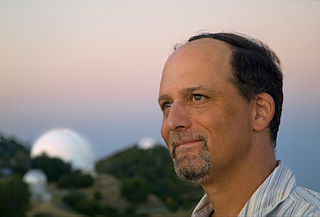A Quote by Christiaan Huygens
The rest of the planets have their dress and furniture, nay and their inhabitants too, as well as this Earth of ours.
Related Quotes
Who can tell us of the inhabitants of this little planet that shines of an evening, called the moon?...when you inquire about the inhabitants of that sphere you find that the most learned are as ignorant in regard to them as the most ignorant of their fathers. So it is in regard to the inhabitants of the sun. Do you think it is inhabited? I rather think it is. Do you think there is any life there? No question of it; it was not made in vain. It was made to give light to those who dwell upon it, and to other planets; and so will this earth when it is celestialized
A major puzzle for which nobody has an answer is this: is there some size at which the planets change their nature from water-rich planets like Neptune, to rocky planets like the Earth? We have found two planets that are the size of the Earth in radius, but they are very close to their host star, so water on the surface would evaporate away.
No, liberty is not made for us: we are too ignorant, too vain, too presumptious, too cowardly, too vile, too corrupt, too attached to rest and to pleasure, too much slaves to fortune to ever know the true price of liberty. We boast of being free! To show how much we have become slaves, it is enough just to cast a glance on the capital and examine the morals of its inhabitants.
In 'Blade Runner,' the here is quite enough: a vision of dark, cramped, urban squalor. This is Los Angeles in the year 2019, when most of the earth's inhabitants have colonized other planets, and only a polyglot refuse heap of humanity remains. Los Angeles is a Japanized nighttown of sleaze and silicon, fetid steam, and perpetual rain.
There are more stars than there are people. Billions, Alan had said, and millions of them might have planets just as good as ours. Ever since I can remember, I’ve felt too big. But now I felt small. Too small. Too small to count. Every star is massive, but there are so many of them. How could anyone care about one star when there were so many spare? And what if stars were small? What if all the stars were just pixels? And earth was less than a pixel? What does that make us? And what does that make me? Not even dust. I felt tiny. For the first time in my life I felt too small.
Rest enough for the individual man, too much and too soon, and we call it death. But for man, no rest and no ending. He must go on, conquest beyond conquest. First this little planet and all its winds and ways, and then all the laws of mind and matter that restrain him. Then the planets about him, and, at last, out across immensities to the stars. And when he has conquered all the deep space, and all the mysteries of time, still he will be beginning.





































